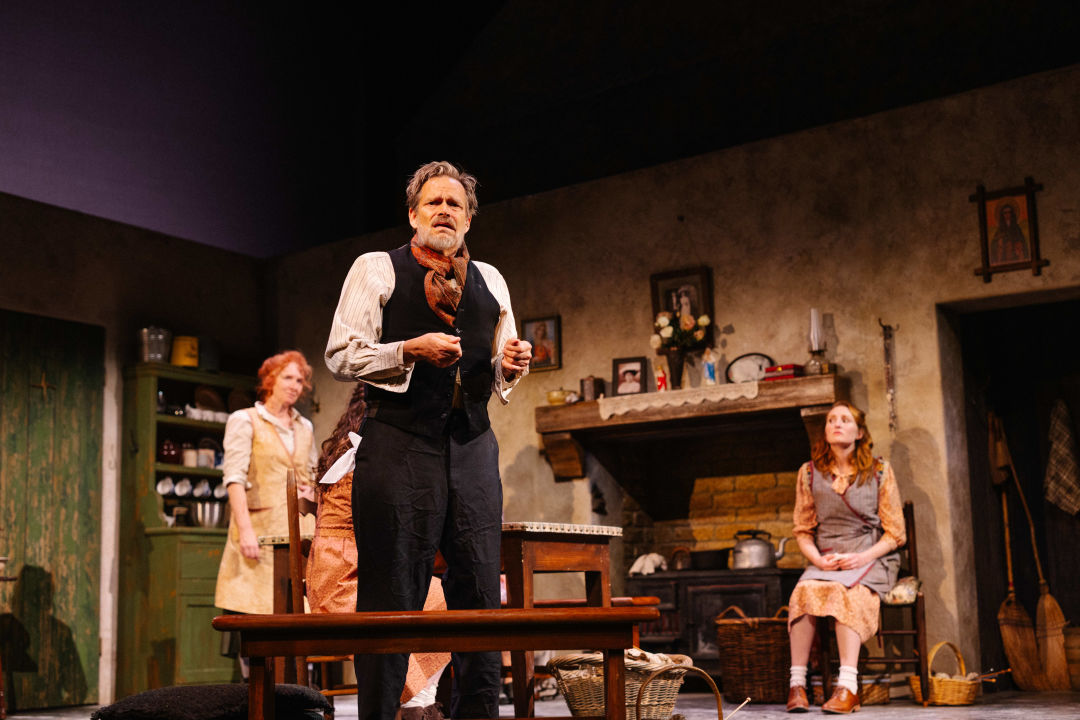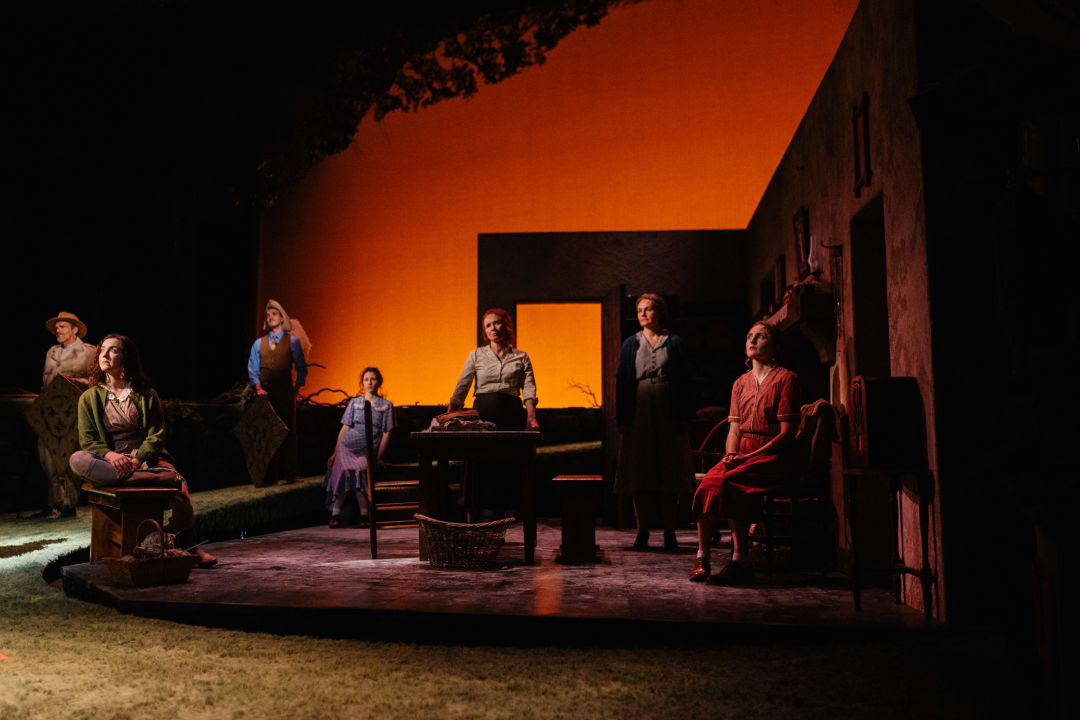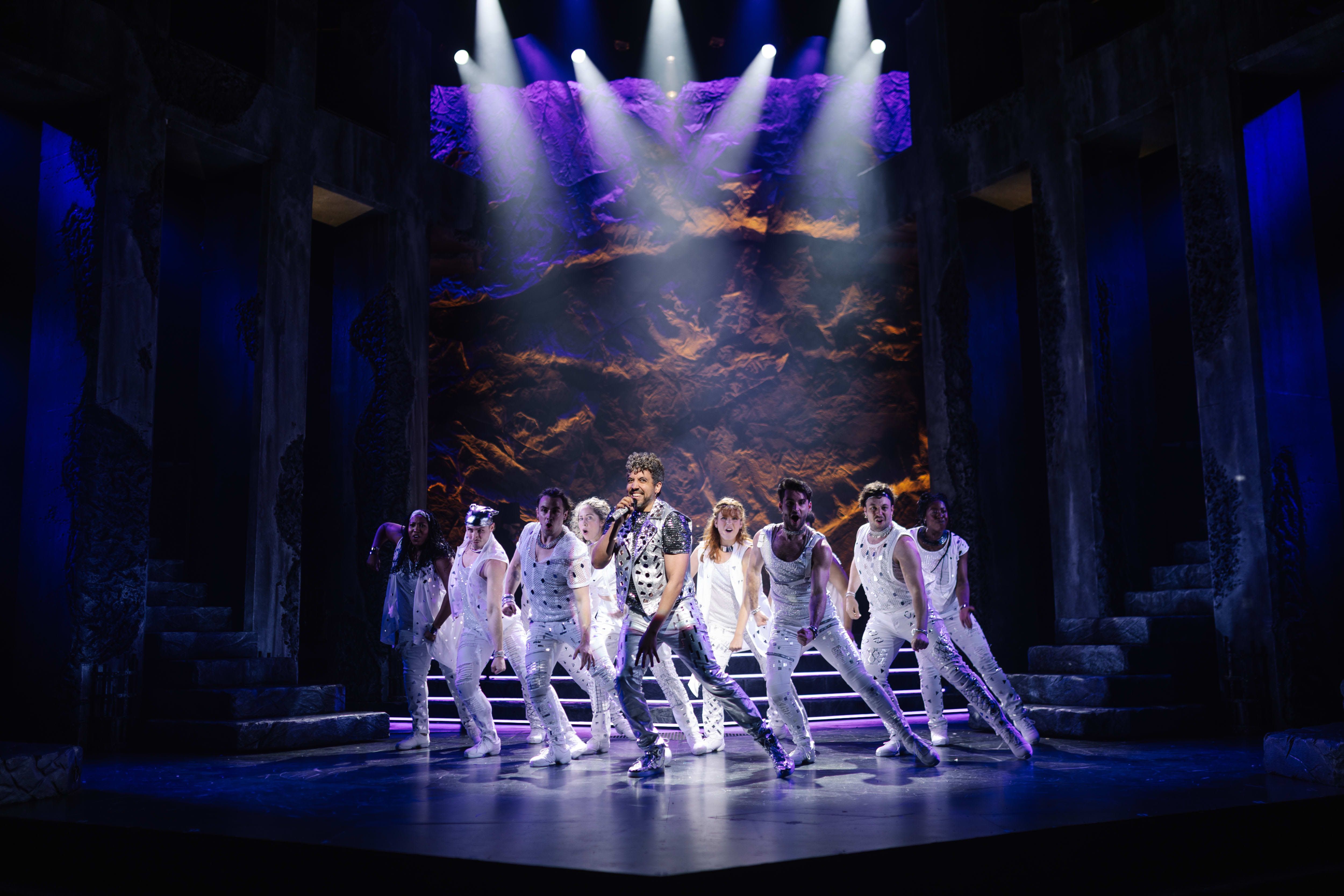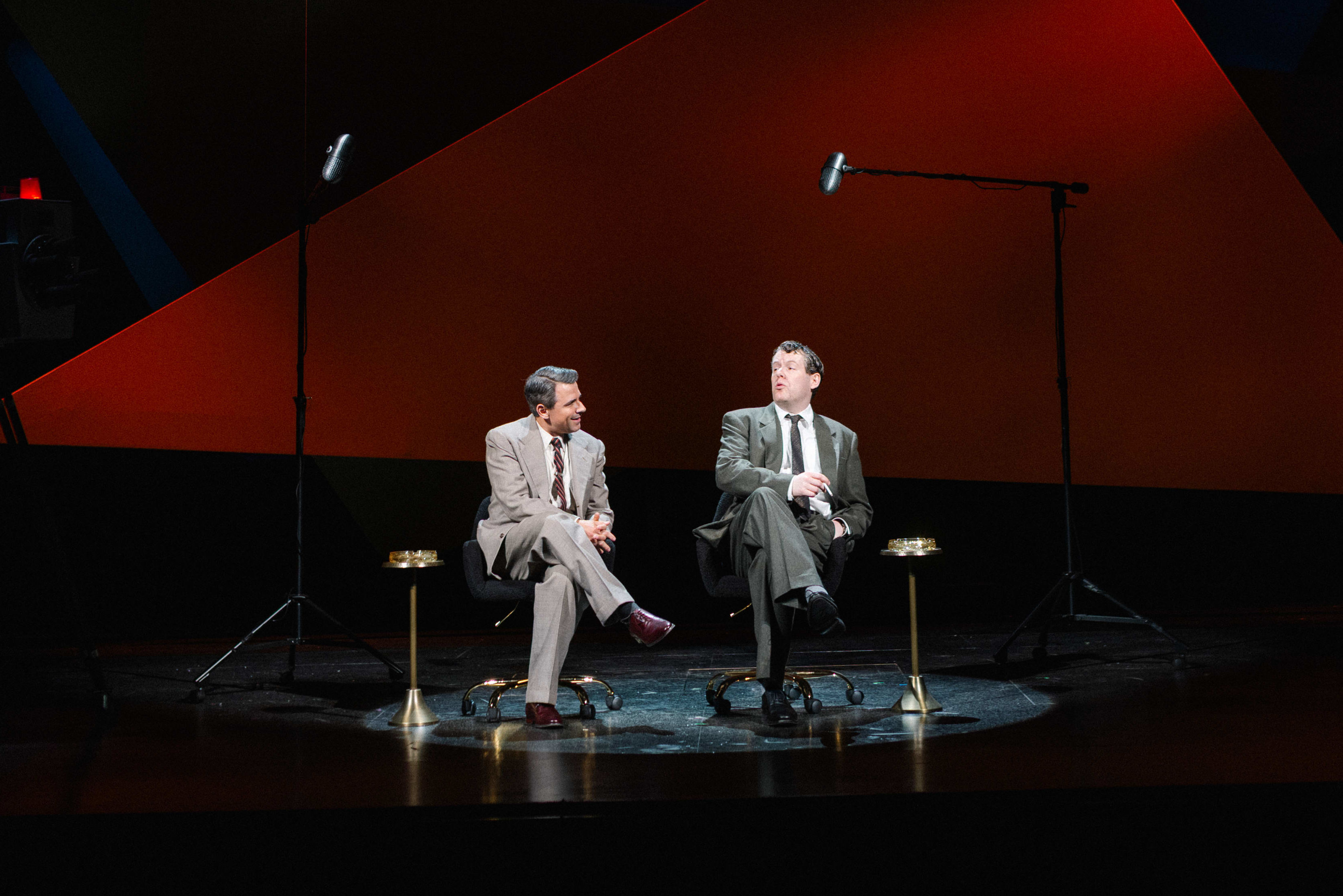Asolo Rep's 'Dancing at Lughnasa' Is a Poignant Memory Play

Image: Adrian Van Stee
It’s been a while since Asolo Rep has presented a play by Irish playwright Brian Friel, and it’s good to have his work back onstage with the current production of Dancing at Lughnasa, which the theater previously presented more than 30 years ago.
There’s also a film version of the piece, which starred (who else?) Meryl Streep. There’s something about seeing it in the theater, though, that really draws us into the world of the five Mundy sisters, living in the fictional rural town of Ballybeg, Ireland, circa 1936. The play is semi-autobiographical, so as a memory play enhanced with a glow of soft lighting by Sinead McKenna and a fantastic set design by John Lee Beatty, we’re quickly caught up in the narration by a grown-up stand-in for Friel looking back at his childhood.
In the first act, we see the main characters through a fond lens from that now grown Michael (Tyler Michaels King), remembering himself as a seven-year-old living with his unwed mother, Christina (Doireann Mac Mahon), and her older sisters. Kate (Gina Costigan) is the strict schoolteacher whose earnings chiefly support the family, while riddle-teller Maggie (Derdriu Ring) takes care of the household and Agnes (Clare O’Malley) and Rose (Maeve Moynihan) eke out a few coins painstakingly knitting gloves. They get by, with a little left over for Woodbine cigarettes for Maggie and new batteries for their finicky wireless—a welcome diversion from the drudgery of daily life.

Image: Adrian Van Stee
Their routines are complicated by the arrival of their brother, Father Jack (Mark Benninghofen), a missionary who’s spent the last quarter of a century mostly working in an African leper colony. That makes his readjustment to small-town Irish life hard, especially in the eyes of the local priest and parish, who observe that he’s accepted the religious traditions of the native Africans he lived with.
The Mundy sisters also face that struggle between the dogma of the Catholic Church and the ancient pagan rituals followed for centuries in their part of the world, including those of the August Celtic harvest festival Lughnasadh, from which the play takes its name. Reminiscing about past festivals is what leads to one of the show’s most thrilling moments, as the sisters all too briefly break out of their usual roles and allow themselves to dance wildly to Irish music.
But as tender as Friel’s recollection can be, it can also be tough. We’re sure early on that when Michael’s charming Welsh father, Gerry (Collin Kelly-Sordelet), drops by unannounced, hopes for a real reunion with Christina and his son won’t be fulfilled. But it’s only in Act II that we learn what the harsher reality of life outside Ballybeg will be for Agnes and Rose—the latter of whom would probably have been described as “slow” in the language of the time because of her developmental disability. The summer of 1936 will be recalled as lost happy days to the rest of the Mundys as well.

Image: Adrian Van Stee
Dancing at Lughnasa feels authentic throughout, thanks to the cast (mostly Irish) and the direction by Joe Dowling, the former artistic director of Dublin’s Abbey Theatre and of the Guthrie in Minneapolis. His understanding of the characters, the setting, and Friel’s language and intent help to ensure that we are transported back to that very specific time and place, and that our emotions are engaged in every way by the Mundys and the poignancy of their lives.
Dancing at Lughnasa continues through April 19 at Asolo Rep. For tickets, call (941) 351-8000 or visit asolorep.org.



